Etron fou leloublan | Interview
Etron Fou as it was called at the beginning (later added Leloublan) started out as a trio consisting of Chris Chanet on saxophone, Ferdinand Richard on bass guitar and Guigou Chenevier on drums.
Formation of Etron Fou.
Guigou Chenevier: The first line up of Etron Fou started to play in 1971 with Claude Achard (keyboard) and me (drums). We started to play as a duo. Claude proposed me the name ‘Etron Fou’. Then Chris joined us on alto sax…then, some months later, Alain Courbis (bass) joined the band too. We rehearsed a couple of months, the four of us, then for some reasons that I forget now (!), we stopped playing. Chris (who knew Ferdinand Richard) asked him if he wants to continue the band with us two…it was then that Etron Fou really started.
Chris Chanet: In 1970, I lived in the city of Grenoble where I was a stage actor, stage manager, and self-taught saxophonist practicing improvised music. I joined a free-jazz band, ‘Libre-cours’, whose double bassist was Ferdinand Richard. Then, to my great regret, the band separated. At this time, Guigou Chenevier came to knock on my door, suggesting I join his organ-drums duet. This was the first version of ‘Etron Fou’ (in English: Crazy Turd), with Claude Achard on keyboards. Some gigs in Grenoble, some tries with a bass player (Alain Courbis), then Claude stopped playing music to dedicate himself to teaching. Guigou and I were playing in a duet, ‘Grâce Molle’, during the first year, then I asked Ferdinand to join us with his double bass, but he’d prefer the electric bass. After some gigs in alternative places in Grenoble, he was the one to add ‘Leloublan’ in the name of the trio, ‘Etron Fou Leloublan’ was born at the end of 1972!
Ferdinand Richard: No. EFL started before I came in. The bass player left for some other continent. Chris came to me to replace him for a serie of summer concerts. After a try with him and Guigou, I told them I would do the summer concerts serie, but stop after this. Finally I played 13 years with the group!
Were you active before Etron Fou?
Guigou Chenevier: I was playing alone. More or less it was my only experience! Don’t forget that I was very young at the time (16 years old!). But, BECAUSE I was playing drums alone, I already started to play in non conventional way…much more melodic…building strange patterns etc.
Ferdinand Richard: I was the bass player and singer for a rock group playing covers (Jimi Hendrix, The Doors, Steppenwolf, Cream, etc…) and also playing with one of the very first improvising groups in Grenoble, where I was also a (bad) student.
Influences?
Guigou Chenevier: When I started to play with Claude in 1971, my main influences were quite ‘straight’. I loved for example Michael Schrieve (Santana), Jimi Hendrix (of course), The Doors, The Beatles etc. But when I started to play with Claude (I was still a pupil at the college!) there was a lot of amazing concerts in Grenoble (where I was living) and I had the incredible chance to see most of the best groups of this period live (Can, Gong, Komintern, Soft Machine, Amon Düül II, King Crimson etc.). I discovered a really new musical world!!! But also, of course, Claude and Chris (who were older than me at least 5 or 6 years) introduced me to many musicians that I didn’t know at all at the time. For instance Art Ensemble of Chicago, Sun Ra, Captain Beefheart etc.
Chris Chanet: My influences at the time were ‘The living théâtre’, which I saw on the campus of Grenoble in 1969, and the concerts I attended: ‘Art Ensemble of Chicago’, ‘Sun Ra’, ‘Soft Machine’, ‘Gong’. When we opened for Magma, we did not know Christian Vander and had to stand out, he didn’t want an opening band because they were usually rock ‘n’ roll bands.
Ferdinand Richard: Captain Beefheart, blues, repetitive music, MC5, etc.
Your first show was at the end of December 1973 when you opened for Magma. Were you friends with Christian Vander or how did you get booked?
Guigou Chenevier: No, not at all. We didn’t know him personally at the time. Magma was already quite famous in France in 1973, and Etron Fou was just beginning, but as I told you, there was a lot of good concerts in Grenoble, and the organizer of these concerts (that we knew very well) proposed us to open for Magma.
Ferdinand Richard: EFL was a quite cynical and satirical underground group, and although we would appreciate the technical and esthetical musical approach of Magma, we found (and still find) the Magma contents, image, message, quite ridiculous.
What do you remember from early shows? What kind of material did Etron Fou play before recording your first album? Were any of this shows ever recorded?
Guigou Chenevier: I remember very well that when we opened for Magma in December 1973 we were already playing ‘L’Amulette et le Petit Rabbin’ (as you know maybe the beginning of this long piece was very satiric against Magma (that we founded much too serious, black and pretentious). I also remember very well that I already played my drum solo ‘Sololo Brigida’. After the 1st set in the afternoon (we played 2 concerts) Giorgio Gomelsky (who was the manager of Magma) came to me and asked me if I seriously had the intention to play again my drum solo in the evening (meaning I guess: “Christian Vander is doing a very long and impressive drum solo…you will not be arrogant enough I hope, to play your little stupid solo before ‘the master’???!!!” )…And my answer has been: “YES OF COURSE, I’ll play it again!!!”
About possible unreleased recordings of the time…I don’t know about any good live recordings, that could be released. Probably exists some, somewhere…but I have no idea where!
Ferdinand Richard: We started to compose the Batelages material and this is what we played on stage since the early beginning. Recording at this time was a rare and complex and expensive process.
Chris Chanet, you have been also involved with the film industry.
Chris Chanet: I was not in the film industry at that time but in the invention of a new form of theater, street theater; a free theater for all, invented for the street/city and played in the street. I still practise this form of theater with my company ‘Delices Dada’.
You’re still active. How about music? What are you currently working on?
Chris Chanet: As for the music, I participated in the recording of the first vinyl of ‘Urban Sax’, some records from or with Guigou Chenevier (‘Arthur et les robots’, ‘Octavo’), a big-band ‘le Grot’Orkestre’, and I remain specialized in improvised music, but also electroacoustic music and composition for theater. I have a band named ‘Le T. T. (Trio Triple)’.
Chris Chanet left the band and you added the word Leloublan. What happened?
Guigou Chenevier: Nothing special…just a normal evolution…as you know ‘Etron Fou’ means something like ‘Mad Shit’, and the scatological connotation of the name started to become a bit ‘heavy’ to carry after a while…so Ferdinand had this idea to add ‘Leloublan’ (which means ‘the white wolf’ and there is a french expression saying ‘known as the white wolf’ meaning to be very famous. So the idea was just a stupid ‘commercial campaign’ calling ourselves ‘leloublan’ would necessarily implie that we will become famous!!! And as you know, this worked perfectly!!!
Ferdinand Richard: I was uncomfortable with the sole name Etron Fou (Mad Shit) and I proposed to add something like ‘Leloublan’,… In french you can say ‘connu comme le loup blanc’ (known as the white wolf) which means it is very well known. Of course, this was a joke. This has nothing to do with Chris leaving the group. Chris wanted to change to something else. We did not have any argument.
Was there an original concept to the band from the very beginning and if so did it change when Chris Chanet left?
Guigou Chenevier: I don’t think it had a specific concept, but in the contrary a strong idea of the music we wanted to play: something quite energetic, a strong sense of humour, rhythmically construction quite influenced by Captain Beefheart, Soft Machine and some others. Chris added to that a theatrical dimension (as an actor). When he left the band, this dimension changed a bit, but didn’t disappeared completely. For example on ‘Les 3 Fou’s Perdégagnent’ with Francis Grand (who replaced Chris). ‘Le Désastreux Voyage Du Piteux Python’ is a piece built with the same process than ‘L’Amulette et le Petit Rabbin’ (surrealistic collage of texts and crazy stories…and musical parts).
Ferdinand Richard: No, the original concept did not change at all.
What are some of the strongest memories from recording Batelages?
Guigou Chenevier: This album was recorded on a 4 track TEAC recorder in Paris, by Thierry Magal (assisted by Fabien Ferreux). Thierry was a very nice person and also a good musician himself. He was playing guitar, keyboard and singing in the psychedelic French group ‘Crium Delirium’. Unfortunately, Thierry died some years ago in India.
Ferdinand Richard: I have little memory of this recording. It was made at someone’s private flat, in Paris, not in a studio, with a four-tracks TEAC machine. It was very new to us, and rather impressive. During those times, recording music was not as easy as it is today.
Where was it recorded?
Guigou Chenevier: It has been recorded in Paris, in a small studio. I don’t even remember the name of it, but it was my first experience of working in a studio and it was great!
How did you get a deal with Gratte-Ciel Records, founded by Jean-Marc Bailleux. You were the first band to release an album on the label. Mahjun, Clivage and a few others followed.
Guigou Chenevier: Very simple. At the time Jean Marc Bailleux was also a journalist writing in Rock And Folk. He wrote some good critics about Etron Fou and we met him at the precise period when he thought to create his own label. So, we started to discuss about the idea to release our album Batelages on Gratte-Ciel. But you have to remember that at the time the business of records was much more easy than it is now. For example, I remember that when we toured in France, it was very common for us to visit small regular record shops in the city where we were playing at night and sell them some copies of Batelages. This would be completely impossible nowadays (anyway there is nearly no more little record shops!).
Ferdinand Richard: Jean Marc approached us with this very new idea at that time of self-production label. Records production and distribution at that time was totally under the control of big national companies or international majors, which were totally dedicated to mainstream. The music we (and other underground musicians) made was really looking too weird for these companies. Jean Marc was a music journalist at that time, and followed these new emerging and very different talents. He was the first to think about new forms of productions. But I believe this is always the same process when new art forms come in. They have to invent their own business forms. It is a good sign.
The album is very free form like. A mixture of theater and rock music. One of the best releases in Rock in Opposition. Was there any concept to it?
Guigou Chenevier: I already answered to this question, I think. No real concept, but you are right…the theatrical aspect was important and we were trying to build each piece as a real ‘story’, even if the stories were quite surrealistic and crazy.
Chris Chanet: This album is a good representation of what we were playing in concert then, without being theater, the visual aspect was important. The writing of the music was collective, texts were either written by Ferdinand (‘Histoire de Graine’) or by Guigou and I, in the form of ‘exquisite corpses’ (‘L’amulette et le petit rabbin’).
Ferdinand Richard: Almost none of EFL production was improvised. We were a hard-working group, processing slowly written forms of musics, and writing numerous lyrics, which would eventually not all deserve to end as songs. Songs were written to be played on stage. The recording was more to be seen as an additional experiment.
What inspired you to record Batelages?
Guigou Chenevier: Etron Fou (more than ever in 1976) was only a STAGE band. We started the group to PLAY LIVE, and during the first three years of the group (1973-1976), we did a lot of concerts in France. In 1976, it became important for us to do an album mostly to help the promotion of the group. Etron Fou was certainly not at the time a ‘conceptual band’ and our idea going to the studio was more to play as good as possible the music we were playing on stage than doing a conceptual album with a lot of sound treatments, over-dubs (there is nearly NO over-dubs on Batelages!!!). It was specially true for me…I loved to play on an ‘over energetic’ level on stage. This was my fun. We started to ‘produce’ our albums later on, specially when we started to work with Fred Frith, who had a big influence on us on the way how to be creative in a studio.
Ferdinand Richard: Nothing special. As I said, songs were made to be played on stage, and almost all the album’s content had been toured before being recorded.
What can you tell me about the cover artwork?
Guigou Chenevier: Jeff Thiebault did it. Jeff was at the time a painter and a good friend of Ferdinand (now Jeff is the artistic director since more than 30 years for the famous french theater company ‘Delices Dada’ who is ONLY making theatre and working in the street, out of real theatres!!!…and by the way, Chris Chanet is also part of ‘Delices Dada’ since he quit Etron Fou!). So, we asked Jeff to do the art design of the sleeve. Jeff had the idea to cover an old bicycle with strips…then he asked a friend of his who was photographer (Jean Pierre Bos) to take a photo of it and it was only by chance that the cat climb on the stool of the bicycle when he took the picture!
Chris Chanet: The cover artwork was done by Jeff Thiébaut, also known as A.Suivre, who is an actor and director of the company Delices Dada, and with whom I still play nowadays. We used to live in a farm in the countryside and this bike mummified like a Pharaoh, this white cat, this door of a barn, this suspended time matched us completely. Then the photo was taken and treated by J-P. Bos, who taught the photography to the students of the city of Valence.
Ferdinand Richard: This was a joint operation between two visual artists. The bicycle was made by Jeff Thiébaut, who lately created with Chris Chanet a fantastic (and visionary) street performance art group (one of the first in France). The picture was made by a friend, a professional photographer, and the cat was there, by chance.
Were you politically active as a band?
Guigou Chenevier: In fact, I am much more politically active TODAY (!) than we were at the time…still we lived in a community, that refused to be too much engaged in the ‘music business’, and that was already something. Our idea, for a couple of years (1975-1977) was to share our time between our musical activities and the ‘normal life’ of farmers in the country. The aim, was to be economically independent. We were quite utopists of course, but to tell you the truth, these ideas were in the air, we were living only some years after 1968, and in a sense it was very common for young people at the time to act like that. Anyway, it was a great time and we were absolutely certain that ‘the revolution’ will come soon!!! A very optimistic and exciting period indeed! Then, as you know, everything exploded and the utopia disappeared to leave only the sad reality of the brutal capitalism all over the world. I am still struggling against it nowadays, on different levels, but on a more ‘practical’ way than before.
Ferdinand Richard: I would not say that we were registered in any political organisation. But at that time we had made the ‘drop out’, as quite a few hippie style communities, and we were living in a commune in a remote part of the central mountains of France. When we moved there, I was the oldest person of the group and was not even 25! Guigou was less than 20. We were kids. But there were several of these communities in the area, and we would exchange goods, tools, political views, way of life, and tried to be as much disconnected as possible from the ‘system’. The general political orientation of the group was anarchy.
Would you share your insight on the albums’ tracks?
Guigou Chenevier: Whaooo, this is not an easy thing to do, but I’ll try…
“L’amulette et le petit rabbin”
Guigou Chenevier: As I told you above, we composed the music of this piece starting from the text. Chris and I wrote this crazy text with the famous process invented by the surrealists called in French ‘cadavre exquis’, which means: someone starting to write something and then hides it (he only lets a few last words appearing at the end of its text that the next writer can see). Then the second person writes something and hides his part of the text etc. until the end of the text! Of course, generally the result of such a text is quite crazy which was the case for ‘L’amulette et le petit rabbin’. Then, we composed the music, inspired by this crazy story. I must add to that, that the beginning of the piece is (as I said above) a parody of Magma…and to finish on the subject, I should also say that during at least 2 or 3 years, we ALWAYS began our concerts with ‘L’Amulette et le petit rabbin’. What contributed for sure to a certain ‘success’ of Etron Fou, specially when we were playing at festivals. This piece was so different by its humoristic, musical and theatrical aspects than the other groups were playing around 1974-1976 (mostly inspired by groups like Genesis, Pink Floyd or Magma…), that we were generally a kind of ‘attraction’ at the festivals!
“Sololo Brigida”
Guigou Chenevier: “Sololo Brigida” is the first drum solo I ever played!!! But in fact, I composed it already as a real ‘song’. My idea was not at all to do a ‘virtuoso’ performance like most of the drum solos are (especially in jazz). It wasn’t quite common to do such a solo in the early seventies…especially with the theatrical aspect of it (I was playing with a helmet, and my drum set was painted in green with the Botticelli ‘Venus de Millau’ on my bass drum skin + an umbrella over my drum-set). These visual and theatrical elements were at least as important as the music itself! But in fact ‘Sololo Brigida’ is mostly important (for me) because of the idea, that I will develop later on, (especially with ‘Les Batteries’ with Charles Hayward and Rick Brown) that drums can be a real melodic instrument was already there.
“Yvett’Blouse”
Guigou Chenevier: This piece was mostly a joke or ‘how to do the shortest piece possible’!
“Madame Richard Larika”
Guigou Chenevier: This is quite radically a different piece than ‘L’Amulette et le petit rabbin’. First of all, it’s an instrumental. Here, no jokes, no text…and a quite complex rhythmical structure on drums and bass. The other side of Etron Fou (who were not ONLY clowns!!!).
“Histoire de graine”
Guigou Chenevier: Here is a text written by Ferdinand. It is also a story, but less surrealistic than ‘L’Amulette’ for example. The structure of his text is more classical, and also more ‘literary’. Ferdinand would be certainly a better person than me to speak about it…
Ferdinand Richard: No. It is not to me to do this job. Listening to music is personal. Anyone should be able to listen without being influenced.
Les trois fous perdégagnent (Au pays des…) was your second album. Francis Grand joined you and played saxophone on it.
Guigou Chenevier: When Chris decided to stop to play with Etron Fou to join ‘Delices Dada’, we looked for another saxophone player. Francis was a friend of a friend living in Grenoble. We met him, tried to play with him, and it worked!
Chris Chanet: I met Francis during a visit to my parents. We lived in the same small town of province, and he used to play in a band of young people still in high school, a music of composition which was not rock ‘n’ roll, which was very rare at this time. Before definitely leaving EFL, I asked him if he would like to replace me, Guigou and Ferdinand agreed.
Ferdinand Richard: Don’t really remember. He was a friend of Chris’, if I remember well. Hanging around in Grenoble.
At the time of your second album, Henry Cow organized Rock in Opposition festival in London. Later there was another RIO festival held in Milano (1979).
Guigou Chenevier: First of all, the funny story is that we discovered Henry Cow (I think it was in spring 1976) when we went to a concert of Captain Beefheart in Lyon. Unfortunately, it was the worst period of Beefheart, when he was playing with studio musicians and released ‘Unconditionally Guaranteed’ on Virgin Records. In the contrary, Henry Cow was opening the show, and we really loved them! Some months later, we met Henry Cow in a concert in Massy (Paris). We gave Fred a tape of Etron Fou…and it’s like that, that everything started…Soon after, Henry Cow contacted us and proposed us to tour with them in England. What we did, and it has been great! We played with them in Leeds, Cambridge, London etc. Some time later, we toured also with Henry Cow in Italy. Three memorable concerts in Roma, Napoli and Mestre (closed to Venice). So, when we played at the RIO Festival in London, we already knew quite well Henry Cow, and Stormy Six too…but it was nice to meet Lars Hollmer and Samlas Mammas Manna…and Univers Zero, even if we weren’t so interested at the time, for their ‘dark’ music. When we played in Italy at RIO festival, I remember long discussions with some people of the Italian communist party.
Ferdinand Richard: At the initiative of Henry Cow (especially Chris Cutler), RIO was above all a gathering of independent and very diverse groups who had in common ‘alternative’ in their economy. It was nothing to see with an esthetic common ground. It became later on a ‘genre’, but this is a deformation of the original goal of this movement.
It seems to me that the whole RIO scene was very connected back then.
Guigou Chenevier: First of all, RIO was presented as a ‘collective’ of European groups, but in fact it was mostly the idea of 2 people: Chris Cutler and Nick Hobbs (Henry Cow manager). THEY decided to create RIO, and what groups will be part of it…and what groups will not be part of it…For us, it was really great to meet all these great musicians and play around with them in England, Italy, Sweden…but as I said already many times, RIO turned to be very soon a little ‘musical ghetto’ in which we were stuck…for example, when RIO started (1978), it was the real explosion of punk music in England, but RIO didn’t have any connection with the punk scene…too bad in my opinion, because I am sure we certainly had many political point of views in common! And then, the RIO ‘label’ became much too big in comparison of what it was in fact…Only the reunion of 5 European groups who made 3 or 4 tours together…nothing more in fact! Plus, that’s true, the strong organisation and label in Italy built by Stormy Six (L’Orchestra)…but unfortunately this strong organisation fell apart quite fast at the end of the seventies when the circuit of the communist cultural places and festivals in Italy (ARCI) fell apart too…at the same time that the communist party nearly dispersed too.
Ferdinand Richard: Yes, and no… since the beginning of RIO they were tensions between members who did not share the same political positions. L’Orchestra was rather radical, as we were, and had not very much to do with Univers Zero, for example. Political discussions were tense. The only thing in common was that we did not want to be a part of the regular music business, that’s all. Henry Cow, l’Orchestra and Samla Mammas Manna organised a few common tours/festivals in their respective countries. They were extremely important for us, but that was it. There has never been a long run centralized/organised common organisation. Each group was organizing its own business. I did it for EFL. I have to say, that I’m a bit upset by the way, the RIO branding has been instrumentalised by people who did not have anything with its beginning, aims, objectives, and who made it a fashion, or an esthetic movement. I have nothing to do with RIO today. It is a manipulation of the history. But I guess this is very common in the history of arts.
You released your second album also on your own label 9H17 Productions (L’Orchestra released it as well).
Guigou Chenevier: Yes! It was a real choice for us to do it like that, but this choice was also influenced by the fact that at this period, it was normal to sell a lot of records at the end of the concerts, and also in record shops etc. A situation completely different than now!
Ferdinand Richard: Purely self-production.
How many copies?
Guigou Chenevier: We always pressed 1000 copies of each album at first with the print that L’Orchestra made in Italy, plus the different re-issue on CD later on, probably we sold more than 5000 copies of each album? Maybe more???…In fact, I really don’t know!
Ferdinand Richard: I do not remember precisely, but I don’t think we ever printed more than 1500 copies, as original production.
You toured USA and performed at Squat Club in New York City and Trinity College in Hartford, Connecticut where you recorded and released a live album, En Public aux Etats-Unis d’Amérique. How was it to play in USA? The RIO scene was not so strong there?
Guigou Chenevier: That’s true, the RIO scene was nearly not existing in the US when we played there the 1st time in 1979. Even though Cuneiform was already existing. But we had strong contacts with some musicians like The Orthotonics, V-Effect, Massacre etc. through Fred Frith who was just starting to live in New York. We also discovered the New York Scene (Plasmatic, Suicide, James White, Sonic Youth etc.) with many groups that we found very close of the Etron Fou ‘spirit’ (much more in fact than many ‘RIO’ groups!). Anyway, for us, it was really exotic to play in the US! I remember strongly our first concerts in Providence and Boston organized by Michael Bloom (thanks to him!) and Jonathan Thomas. In Boston we played with Hatfield and the North. We also played with some crazy american groups like The Stikmens (a kind of ultra punk and over speed band from Philadelphia if I remember well). I remember that their concert was really astonishing, but who remember this group now??? I would be curious to know if some of these musicians are still making music. But anyway, for us, the shock in the US was that EVERYTHING was bigger than in Europe…the cars…the distances…and the funny thing was that a lot of american people told us that our music was ‘so french’!!!. It was a real discovery for us, and we never thought before that we had something specifically ‘french’!!!
Bernard Mathieu: I met Ferdinand just before the US tour. I was the owner of a little record shop named Margot Music and Margot was my nickname. That explains my name Margot on the first solo album of Ferdinand. The saxophonist was Gérard Bôle du Chaumont who left EFL suddenly before the US tour for a pop solo career as a singer that failed. I met EFL by Michel Augier leader and founder of Johnny Be Crotte, band with whom I played before. At this time I was the founder and leader of a Street Brass Band named l’Etrange Napolitaine. This band played on the first solo album of Guigou. When I knew that EFL was searching a sax player, I said to Ferdinand I was interested. At the first time Ferdinand refused because I play tenor and soprano sax. And EFL used to play with alto sax. Finally we start to rehearse together 3 or 4 weeks before the US tour. And it was OK. The tour was fantastic. We played at Boston, Hartford, NY, Philadelphia and Baltimore. It was Fred Frith that helped us to organised this DIY tour. At the time, Fred lived in NY and played with Bill Laswell in the band Material. That explain why we recorded with Bill Laswell on Speechless Fred album.
Ferdinand Richard: In the summer of 1979 Fred Frith, with whom I had a closed friendship, decided to move to the US, and I went together with him, not to stay, but to see if organizing a tour for EFL was likely. This first US trip of mine came at the same time, the New York Gong was touring the East Coast, so I followed them a bit, since I had good relationship with Giorgio Gomelsky, who was in charge of this group at the time. He also had a club in NYC, the Zu Club, where a young musician was living (in the club) and was also the bass player of the NY Gong. His name was Bill Laswell, and we we were good friends then. The EFL tour came a few months later, in 1980. We recorded it on a 4-track machines, although one of the track was most of the time out of duty, so you can considered this has been recorded on 3 tracks, in very acrobatic conditions! At that time, it was really unusual, I think we were the first french group to tour there, at least the first to record a live album, which was unbelievable for the regular french music business. Some of these Parisian guys declared that this was a fake US tour, that we had invented everything and had never been there.
After US tour you became a quartet. Bernard Mathieu, what do you remember from joining the band? Les Poumons gonflés album followed. It was produced by Fred Frith.
Bernard Mathieu: I joined the band just before the US tour. We met a Swiss guy, owner of Turbo Records and also a very good recording studio. He was really enjoying EFL and he produced as the French meaning (Fred was the executive and artistic producer): ‘Les Poumons Gonflés’.
It was a very good experience. Working with Fred as a producer was really great. But I recorded this album (which is very good, I think) even when we decided, that I was leaving EFL. Because I was not very OK with the evolutionary stagnation of the music of EFL.
For the fifth album, Les Sillons de la Terre, the lineup changed with saxophonist Bruno Meillier replacing Mathieu. What can you tell us about your involvement, Bruno?
Bruno Meillier: My first memory of the band goes back to June 1975 at a pop music festival in St Just sur Loire, a small town along the Loire river, this is where I discovered them. Nana Vasconcelos was part of the program and it was mostly folk acts which I was not so excited about back then. But when the trio got up on the stage, I liked them immediately. It reminded me of Captain Beefheart, a bit of Egg and Van Der Graaf Generator. That combination of bass and drums, odd time signatures and no electric guitar was unusual. The next morning I approached Chris, their sax player and asked if they would consider hiring a synthesizer player (which I desperately tried to be at the time)…’Why not give this a try ?’. His reply made me walk on air! I was only 18 then. Luckily the opportunity never arose, it would have been a disaster musically.
Later I happened to see the trio in other festivals, here and there, each time with a different saxophone player. In July 1980, Ferdinand Richard came to hear my own band, Les i, in Tournon (we opened for Here & Now) and proposed, since he was living next door to an 8 track recording studio in Avignon, to produce us an album (he was going to produce the three we made actually, it would be the beginning of a successful and lasting collaboration). At about that time Les i had become part of a new rock circuit here, festivals and clubs, and eventually opened up for a Captain Beefheart last tour’s date in Lyons. Our music was a mix of no wave, jazz and funk with probably a French twist, certainly not as original as Etron Fou’s. But our drummer, Dominique Lentin, had belonged to Dagon, Fille qui mousse, Kool Gool, all mythic bands from the early seventies underground Parisian scene, bands which just like Etron Fou, had walked on the Beefheart, Zappa or Soft Machine trail (a major influence here in France in the early ’70s).
Right after the first Les i album came out, we heard Bernard Mathieu, EFL sax player, was to quit and I proposed to replace him. I was thrilled to join them. But guilty as I felt to leave my own band aside, I always saw this as a temporary replacement, limited to a one-album only collaboration. The reason why I remained less than two years in the band although we had fun and it was an intense creative time. Les i would not get invited abroad – I think we played just one gig in Basel – while, EFL’s image not suiting the new wave inclination here – they were regarded as old hippies, communes, goatherds, etc -, I remember I played four gigs only with them in France, one of them which I put on in Saint-Etienne, my hometown. Thanks to Ferdinand’s obstinate management, EFL would tour Switzerland, Austria, Germany, Holland, Sweden, east-European countries and USA instead, places where audiences were more open-minded. The four of us composed the material for Les Sillons de la Terre, their most jazz-oriented album (I listened to a lot of jazz back then). After I quit, the no-sax trio would be (in my own opinion) the band’s strongest incarnation. I saw that trio on a special event on the Effeil Tower’s first floor in 1984. And Face aux éléments… sounds to me like their best album ever. Fred’s production is terrific, adding colours and knitting all instruments together perfectly.
One evening in 1984, Ferdinand called and proposed we would start a duo together, Bruniferd, which now looks to me like an expansion of what I did in EFL. Except that duo worked on a more minimal concept (no chords, no drums, no electricity, just bass, flute and saxophones skinny lines, and poems of our own, in between pieces), chamber music of a more ascetic kind. A lot more flexible economically, that duo would export itself better than a four or five members band with equipment, etc, and lasted longer. From 1984 to 1997 we made several tours in Europe and Japan and recorded 4 albums (one of them, produced by Hat Hut, is still in the vaults).
By the mid-eighties, we had all committed ourselves in various projects including solo albums, well we had to; restricting to just one band could not be enough to make a living or gain recognition. Conditions were difficult, and are, by the way, much much worse now. Would EFL reunite today, I am convinced life would not be easier. To be honest with ourselves we would probably not play the same music, create new challenges and as a result not get invitations elsewhere than from those festivals for R.I.O. nostalgics. Which are indeed not so many and have not cared much about EFL anyway. No tears, no regrets ! Etron Fou were true originals in a sense, always against dictated rules, with a strong and typically french ‘esprit de contradiction’. Should people expect us to play rock, we would turn improvised, should they expect us to sound prog or rock in opposition-like, we would play regular 4/4 time signatures, and so on. While still making of our own technical limitations an asset.
Since there has always been a lot more of interesting bands around than opportunities to perform for them, the idea came naturally to Ferdinand to set up in St Remy de Provence in 1986 the MIMI festival (where Etron Fou played his last gig), and I followed his example with one called Musiques Innovatrices at the Saint-Etienne’s public theatre the next year. Almost 30 years later, both festivals still exist and do connect in style. Guigou also started one of his own in the meantime. It seemed musicians could not be satisfied with making music in the old-fashioned romantic way, the genius retiring from the world to compose timeless masterpieces! We definitely had to seize the bull by the horns and commit ourselves in extra activities (recording, writing, producing, labels, festivals, etc) to help the economical survival for these musics. I know France is regarded internationally as the number one country for culture. Our experience, I am sorry to say, reflects just the opposite, grants do not exist for musicians of our kind, private sponsoring is just a dream, culture money goes to opera houses, to big prestigious venues,… Neither the independent musician nor the independent producer gets supported. My festival (22nd édition) does not get any financial help this year in 2014. After years of struggle and keeping on. C’est la vie…!
Face Aux Éléments Déchaînés was your last album, released in 1985 as a trio of Richard, Thirion and Chenevier. Frith produced the album and guested on four of the tracks.
Guigou Chenevier: Yes, and this is in my opinion, one of the BEST album by Etron Fou. I would like to mention Sophie Jausserand, who made the art design of this album…and it is NOT because Sophie is my wife that I want to say that her sleeve art design for this album was absolutely great. The music of this album is also completely different than on the early albums by Etron Fou. Less humoristic, satiric and funny…darker, deeper and stronger…The line up of the trio with Jo was also going to the essential in terms of composition.
Ferdinand Richard: This album is a good one, although I think Fred is a little bit too present on it, even though his contributions are great. Fred is probably the best record producer I ever had the chance to work with, and on this album he tried very ambitious things as a producer. I learnt a lot from him. But as a musician on this album, I would not consider his contribution as major. He has produced much more important musical works in other contexts.
What happened next?
Guigou Chenevier: The group was existing for 13 years now. At this point we already had made 5 albums, more than 400 concerts all over Europe and the States. A real change was necessary to continue and to not repeat what we did in the past. Plus, at this point, all of us (at least Ferdinand and I mainly) started to play with many other musicians…it was a very positive experience for us of course, but also that was meaning that ‘The’ group (Etron Fou) was not any more our only musical occupation…And finally, there has been this crazy story with Ferdinand who had at the time a huge problem taking the plane…because of that we cancelled at the LAST minute a tour in the US!!! (we were at the airport in Luxembourg and Ferdinand couldn’t take the plane).
We went back home completely depressed…Some months later, Ferdinand organized again the tour, and BANG!!! Same scenario again when we arrived at the Luxembourg airport…But this time, Jo and me decided that we couldn’t cancel this tour for the second time…So we took the plane without Ferdinand…in the evening, we had a first concert in Reykjavik in Island, on the way to The States…Then, in the US we did some concerts as a duo (Jo and I), some concerts as a trio with Fred Frith, and some concerts as a trio with Ann Ruppel (the brilliant bass player of V-Effect). Then, when we came back to France, it was clear for me that this story was acting the end of the group. I decided to quit the group in July 1986.
Ferdinand Richard: I did not decide to split. I started the MIMI festival in 1986, and the very first concert of this very first edition was the very last concert of EFL. But at this time, I did not knew it. Guigou had other groups with other musicians, especially Encore Plus Grande, and I believe he was more interested to try new things with this group than keeping on with Jo and myself. The fact that Jo and myself were a couple was maybe also a factor which counted for him. So he decided to stop the group. Jo and myself became suddenly jobless.
All of you were involved with various of other musical projects, which we didn’t mention and we would really appreciate if you could highlight some of them.
Guigou Chenevier: In my case, I started to play in 1984 with ‘Les Batteries’ (a drum-trio with Rick Brown of V-Effect (USA) and Charles Hayward of This Heat (GB)). At the same time I started also to play with ‘Encore + Grande’, a franco-dutch band with Han Buhrs (voice), Raymund van Santen (keyboards) and Guy Sapin (guitar). Later on (in 1987-88), I created ‘Buga Up’ a trio with Tom Cora (cello) and Christiane Cohade (bass). This trio was soon after is joined by René Lussier (guitar) who replaced Christiane. In 1993, I created ‘Volapük’, a trio with Michel Mandel (clarinet/bass clarinet) and Guillaume Saurel (cello).
‘Volapük’ played all over the world (including crazy places like UshuaIa in Argentina, Tachkent in Uzbekistan, or Wellington in New Zealand!!!) during 17 years (1993-2010), and made 5 albums (3 of them appears on Cuneiform). I also did some cine-concerts with some musicians of my collective ‘Inouï’ (Greed by Erick Von Stroheim, The Unknown by Tod Browning, Nanook of the North by Robert Flaherty etc…) and I played with many musicians in different contexts like Albert Marcoeur (with ‘Les Batteries’),Ted Milton (in the cine-concert ‘Le Bonheur’), Nick Didkovsky (with our duo ‘Body Parts’), Richard Deutsch and Elio Martusciello (with my project ‘La Musique est-elle un Art de Combat ?’), Phil Minton and many others…
Bruno Meillier: The french journalist and music lover Pierre Durr, spoke at the time of an Etron Fou-Les i nebula. Just like Magma, Gong or Henry Cow had been nucleus for many side projects, our own bands generated theirs, some of them which are still active today. To name a few: Virgule 3, Virgule 4, Ni Treve Ni Relache, Barbarie Légère, Buga Up, Zero Pop, Les Batteries, Encore Plus Grande, Voyages Extraordinaires, Arminius, Ferdinand Et Les Philosophes, Ferdinand Et Les Diplomates, Art Moulu, Zar, Le Vaste Océan, Best Before, Zou, Volapuk, Body Parts, Octavo, L’Empire Des Sons, Voé,… I am sure I forgot plenty.
Bernard Mathieu: I founded the Mathieu Combo who recorded for AYAA records and 52ème Rue Label I wrote the music for two theatre plays in which I was also an actor playing music: Epreuve d’Orchestre and Le Murmonde. I lead a new Street Band Les Bontuillos for 4 years. I founded a saxophone quartet named Faburu Combo with a young girl as a drummer and Francis Grand as a Barython player who lives in Avignon. At the first time I have the idea of a Saxophone Quartet with the 4 saxophonists that recorded with EFL. But the project failed. I have a lot of music on my PC but not issued. It’s a project. I recorded a rock album with my young brother as a drummer/singer: Les Frères Delabone. I enjoy to write words and music for rock songs.
Ferdinand Richard: I started working on improvised music with group Gestalt et Jive, with Alfred Harth and Peter Hollinger, and this was a complete change. We toured a lot in the north, including the former soviet block, which was a true experiment! I also released a couple of solo albums, with my own way of experimenting the music/song writing. They were a commercial flop, but I like them, even though they are far from being well done.
What currently occupies your life?
Guigou Chenevier: I am still playing a lot in different projects:
-“Le Cabinet du Docteur Caligari”, a cine-concert that I do with Loïc Guénin (young musician playing keyboards and percussion)
-My solo “Musiques Minuscules”
-“Les Mutants Maha”, a new trio with Takumi Fukushima (violin) and Lionel Malric (keyboards)
-“Le Miroir et le Marteau”, a trio with Gilles Laval on guitar and Franck Testut on bass (we recently released a CD distributed by RER)
-“L’Art Resiste au Temps”, a crazy project with 6 musicians, 1 poet, 1 painter, 1 actor and 1 sound designer.
-“Reve General” a creation we will do next Fall with 3 members of Volapük (Takumi, Guillaume and I) + the 4 members of the Czech group ‘Metamorphosis’
-“Balungan”, another big project that we’ll start next Fall with 6 musicians from the Java Island (playing gamelan music) and 6 musicians from France
-“Le Contraire de Un”, a new project too, kind of theatre and music project on some novels by the great Italian writer Erri De Luca
– “Résister à la Chaine”, a theater and music project with 2 young and brilliant musicians (Thomas Barrière on guitar and Bastien Pelenc on violin and voice)
We also get a little theater now in my town (Avignon) since 2 years, where we work, organize concerts, invite other artists to rehearse. A place where we also organize workshops etc…
Bernard Mathieu: I am since the early 90’s an elementary school teacher. It was as a teacher I lived in NY in 1995/1997. And I played with a NY band named Twenty % Tippers. I was involved in the Collectif Inoui but I left Avignon for the Bourgogne where for the moment music is a little down for me. I hope to ‘reborn’ soon as a composer and player.
Ferdinand Richard: I am still running the MIMI festival (30 years in 2015), plus a music center in Marseilles (rehearsal studios, micro-businesses incubator, etc…). I am also supposed to be expert in cultural policies for several institutions, including UNESCO and others. I am very busy…
Etron Fou Leloublan was recently reissued.
Guigou Chenevier: Only one thing: the interest of your magazine (as the interest of many people) for a group like Etron Fou (who stopped any activity more than 20 years ago!) is very strange for me… Of course it is very nice for such a magazine as yours to propose us such a long and interesting interview…but in my case, Etron Fou belongs to the past, and as you see I am still very active musically…nostalgia is not my cup of tea. Thanks a lot for your interest in this old dead group.
Sorry, but I will go back to play music NOW !
Florian Schall: The name of the label is Replica. It is run by a small collective mainly revolving around a record store from Metz called La Face Cachée. Our goal is to re-release obscure gems from the French underground ‘patrimoine’. Bands that are forgotten through modern times and its various plagues (Internet, MP3, quite surprisingly). We give those records a second birth. With love, passion and respect. We work in collaboration with Musea (a label from Metz who owns the mechanical rights) for those reissues. We love the way it goes with Bernard Gueffier. Very smooth and gentle. Just the way we like it. Artwork-wise, we recreate our reissue from the original art. Soundwise, it’s pretty much the same. We work with Julien Louvet for that and he’s the coolest guy of all. So far, we’ve released Mexico by Ergo Sum and Batelages by Etron Fou. Of course, regarding Etron Fou, we plan on re-releasing their whole discography. Coming up next, we’ve got the first and only record made by French progster Arachnoid and Les Trois Fous… by Etron Fou. We plan on doing a lot more official reissues in the near future so keep eyes and ears out for more.
Would you like to share anything else with us?
Bruno Meillier: I am still playing. I work since 2003 for a record distribution company, importing and promoting in France, Cuneiform, Recommended Records, Tzadik, Moonjune, ESP-disk, Sublime Frequencies, etc. Orkhestra (founded in 1993) is a catalogue of more than 6000 albums and I still run the Musiques Innovatrices festival at the Mines Museum in Saint-Etienne: our 22nd édition early June http://www.musiquinno.fr/
Florian Schall: Thanks a lot for the interest. Listening to music on vinyl is not just a trend. As ridiculous as it may sound, to us it is a way of life. Do not hesitate to get in touch with us and drop us a line if you wanna get our releases. Just check that nice website: www.la-face-cachee.com
Special thanks to Guillaume Jankowski for translating part of the interview and to Fred Frith for helping me to get in contact with the band.
– Klemen Breznikar

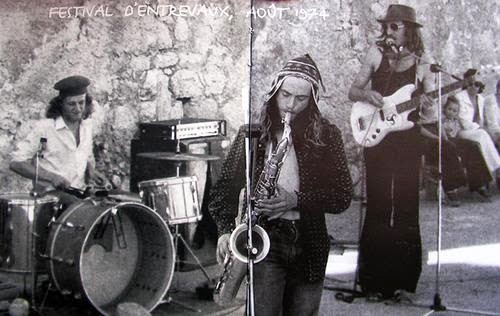

.jpg)
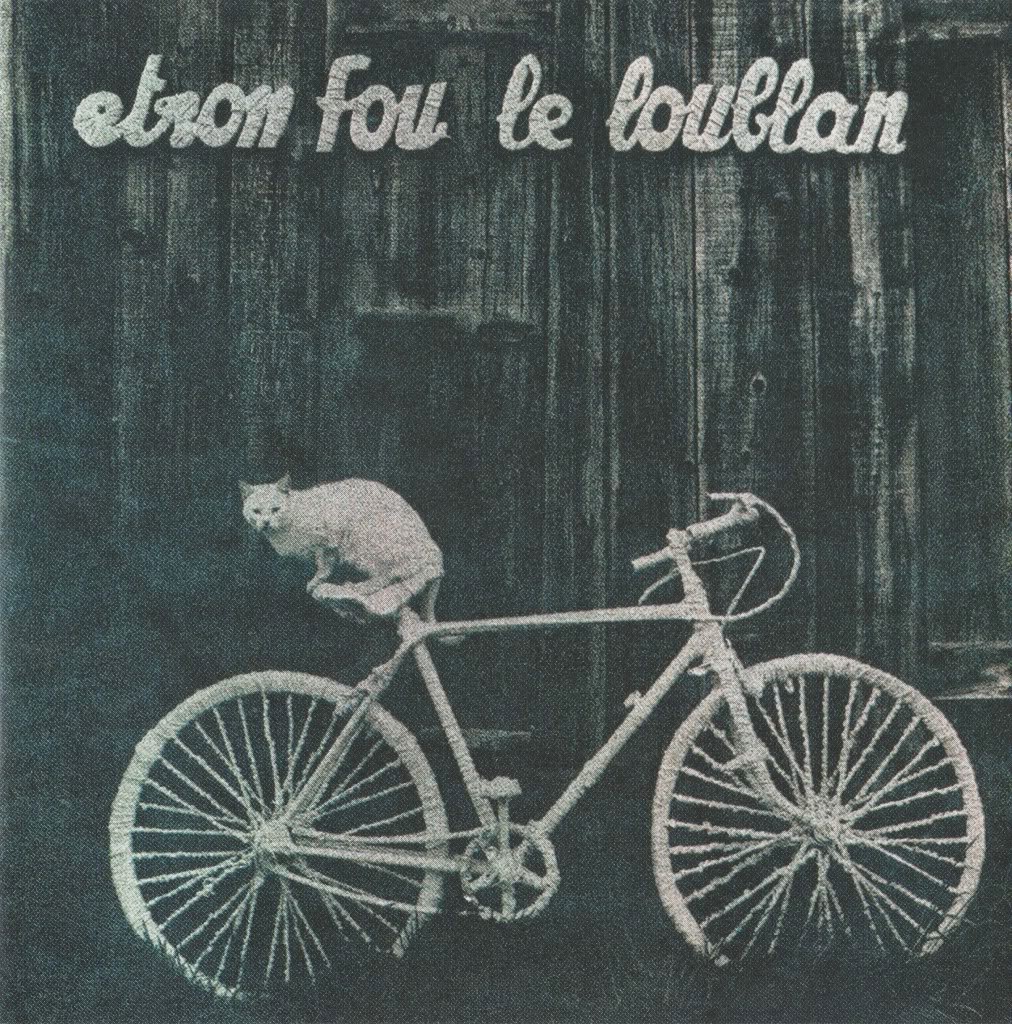
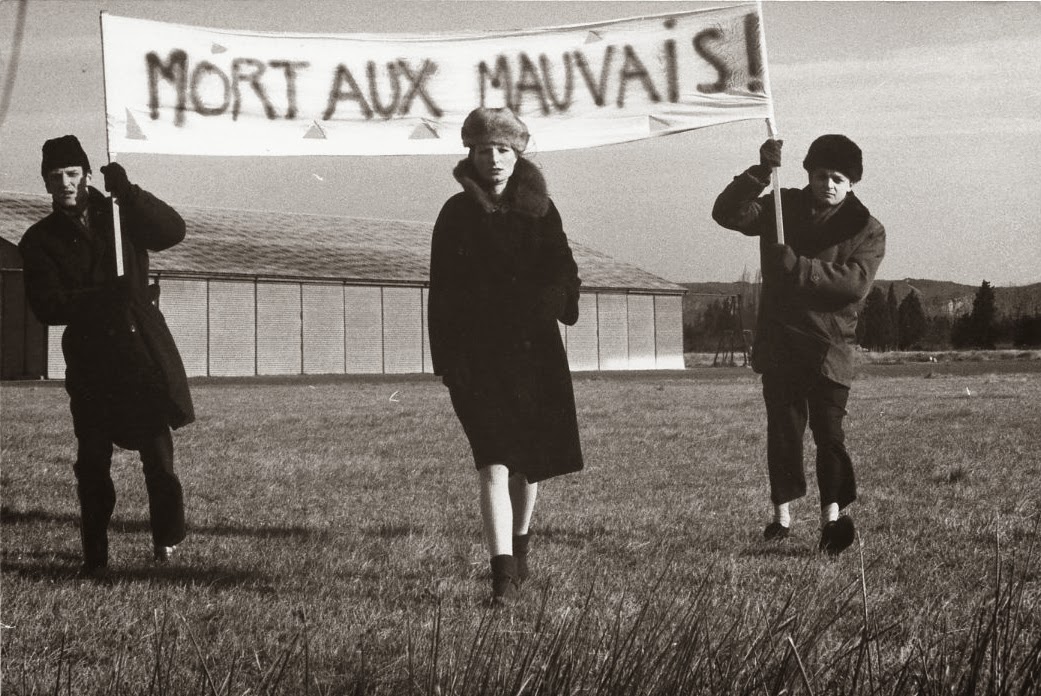
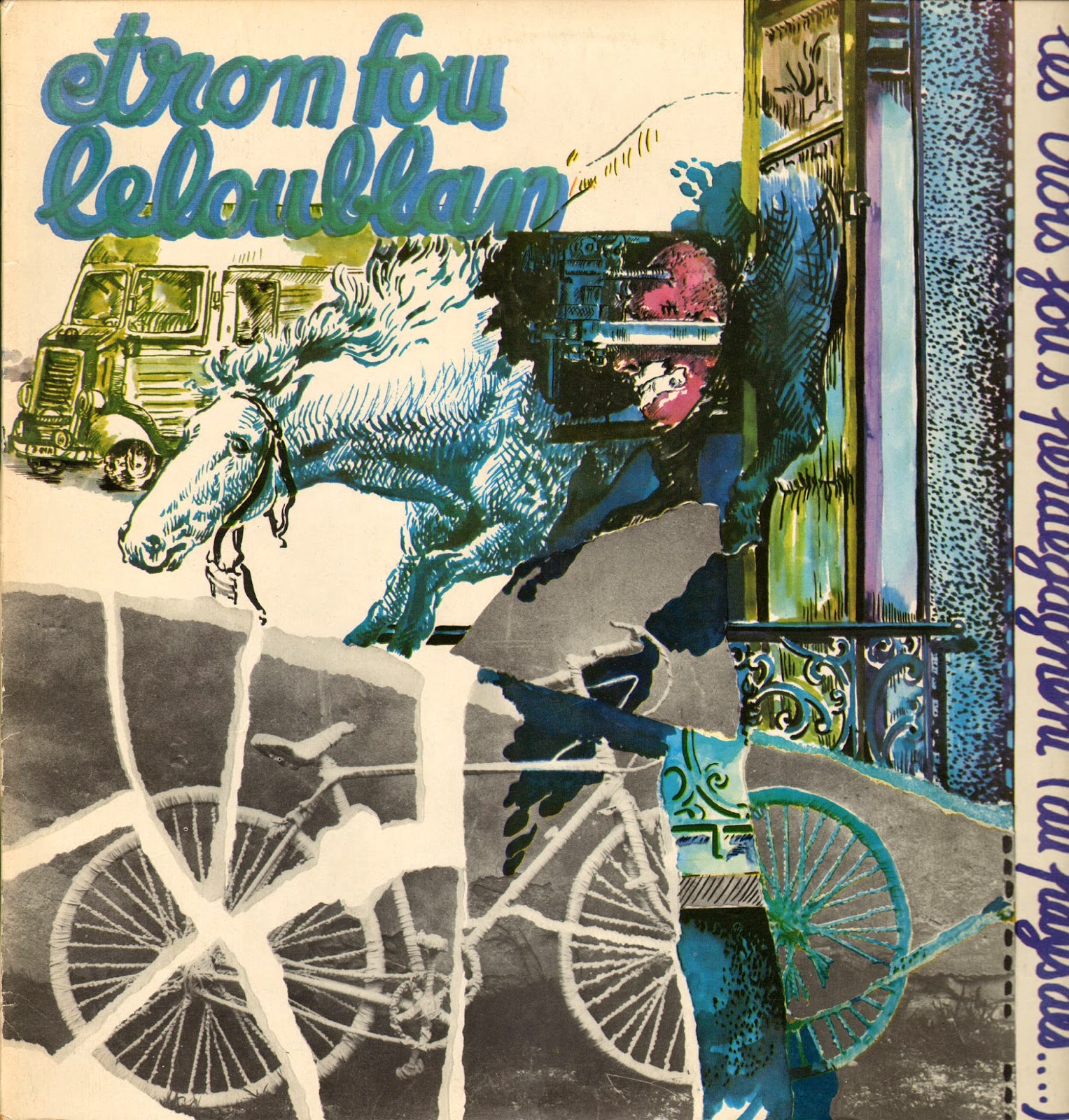
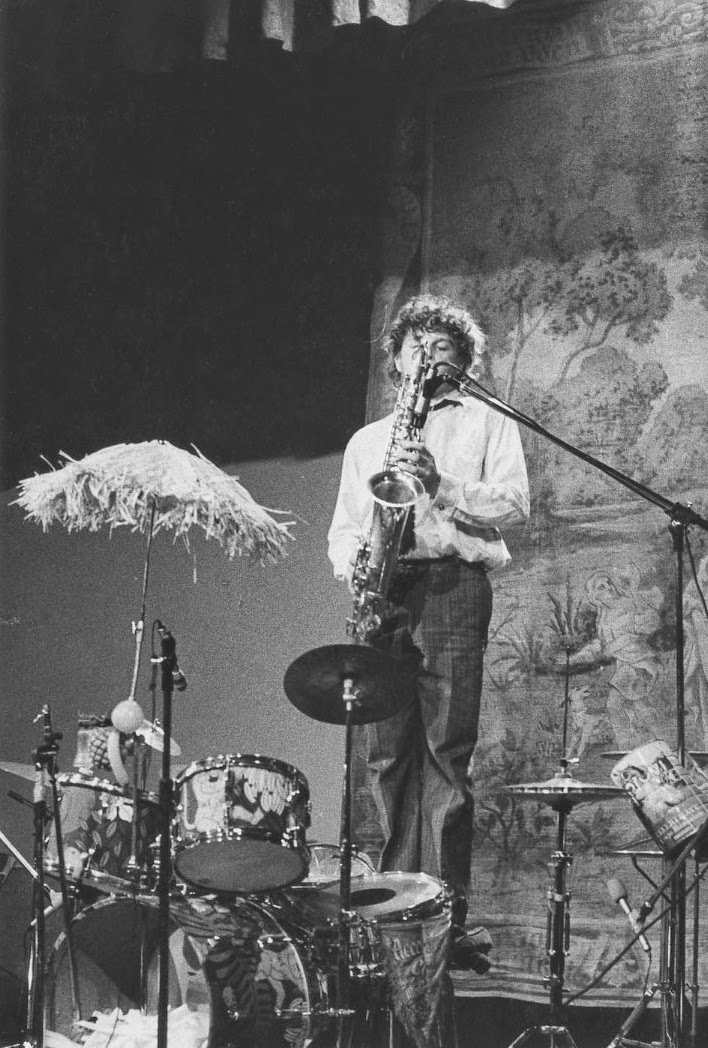
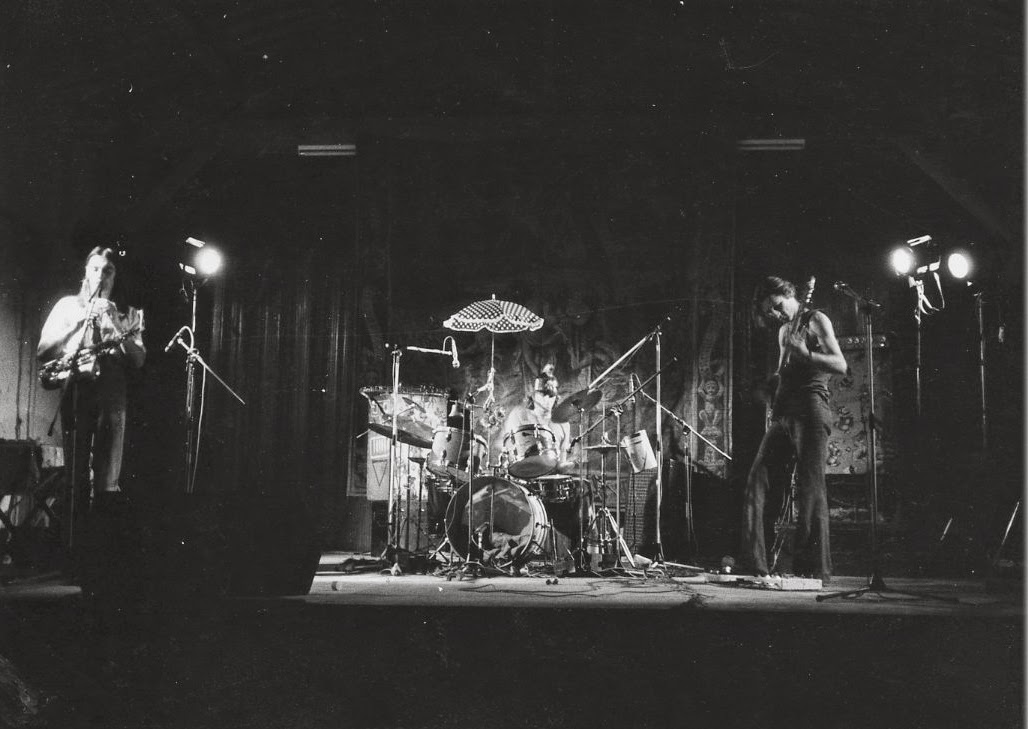
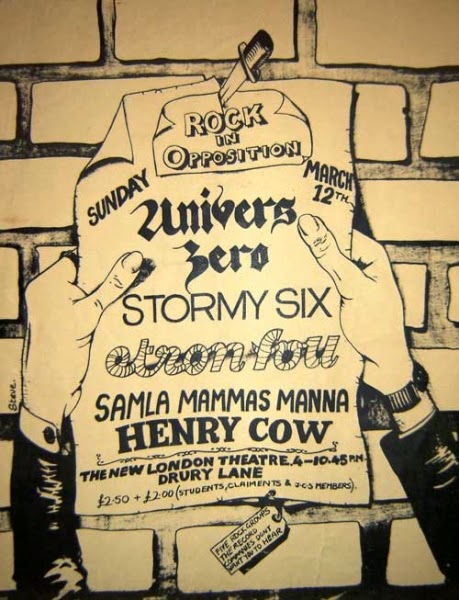
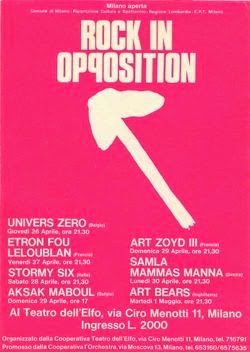
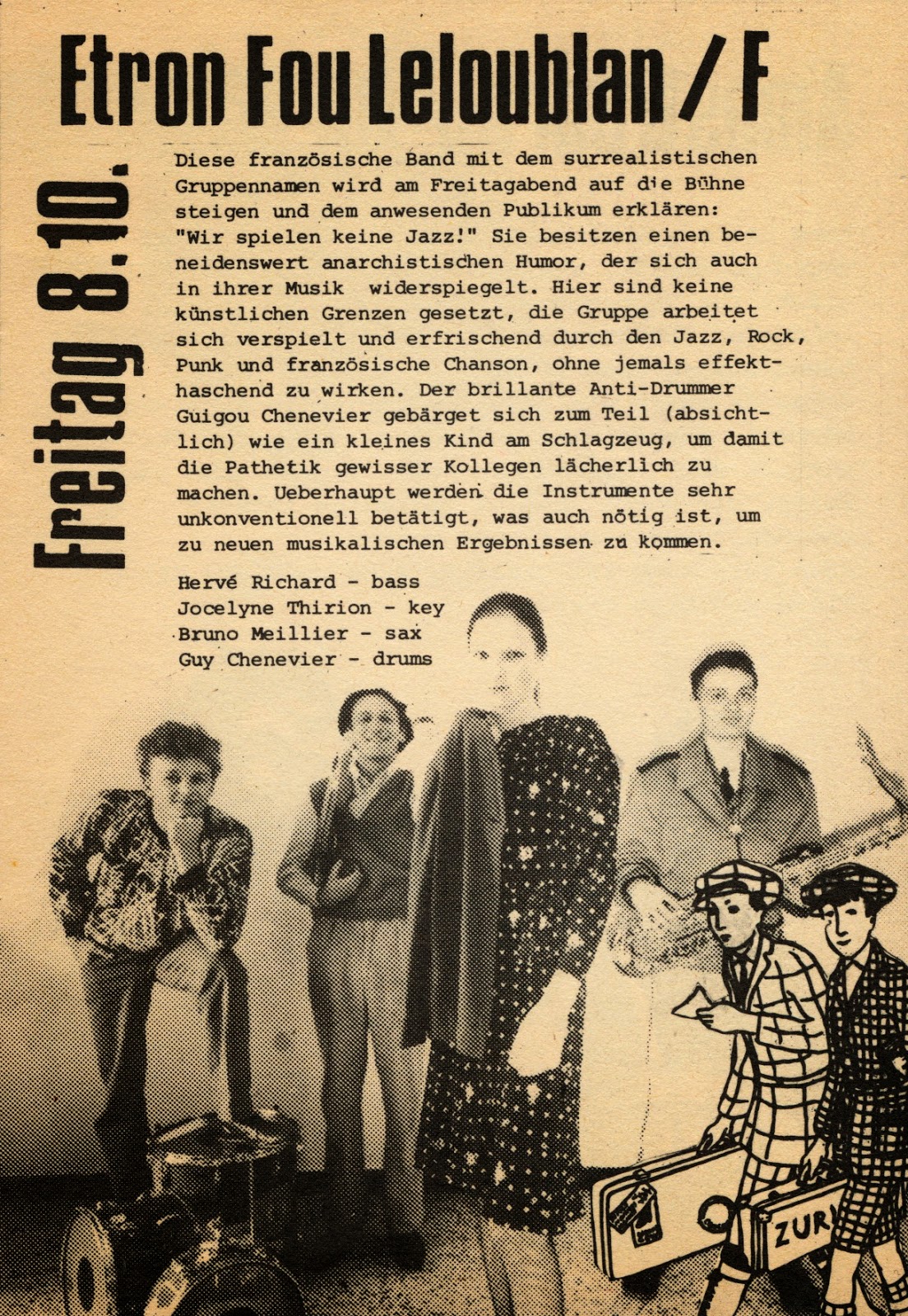
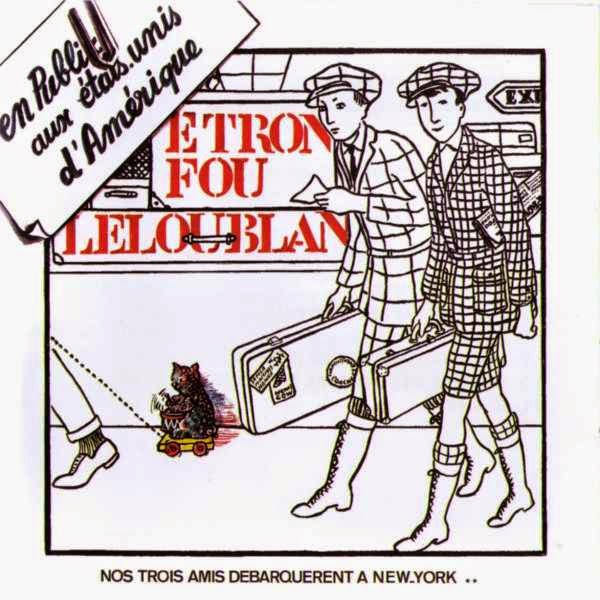
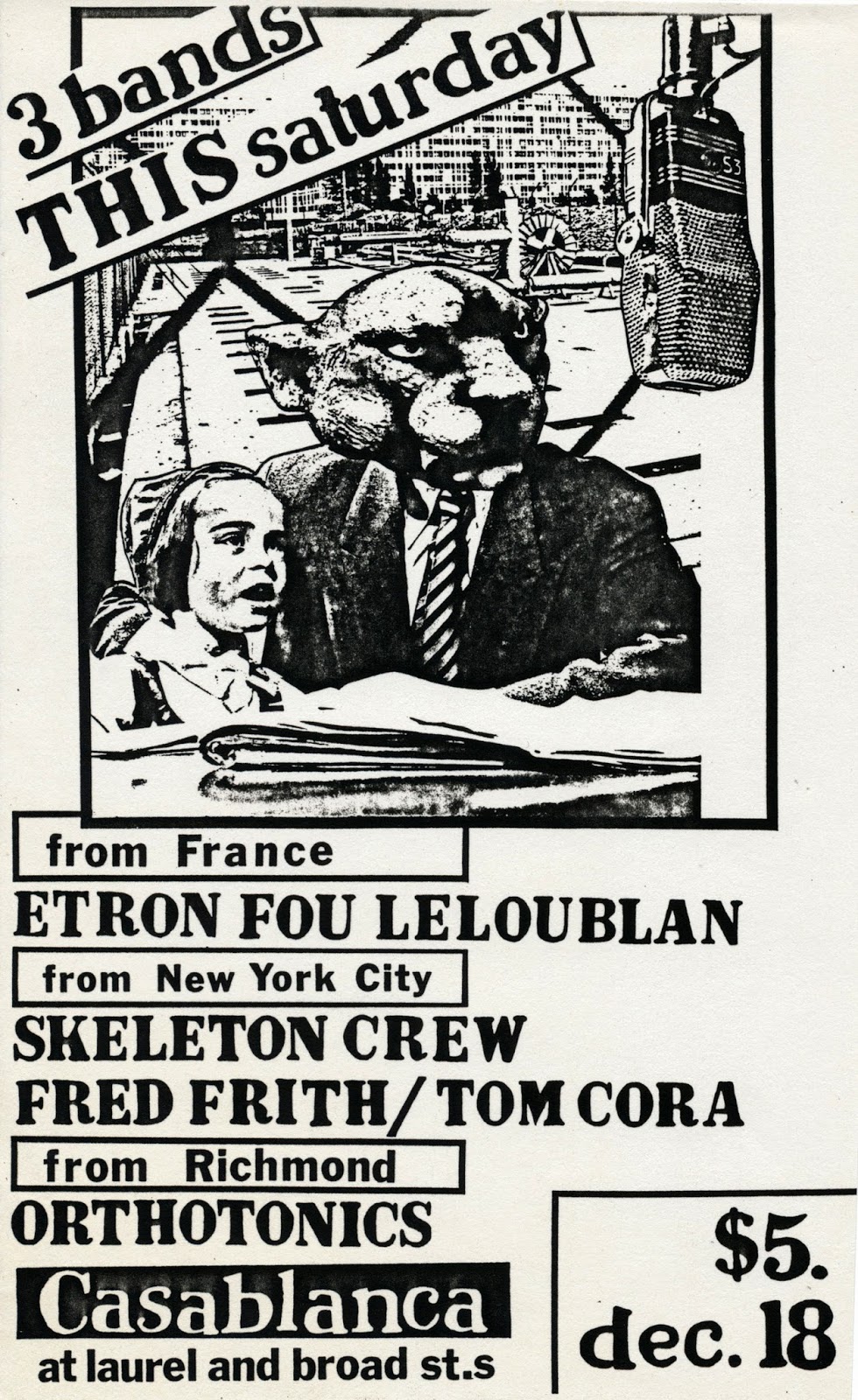
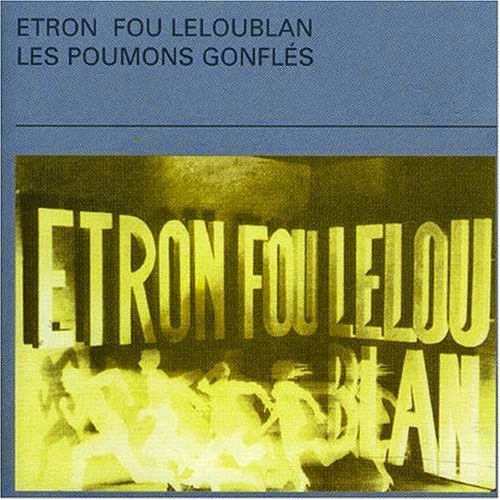
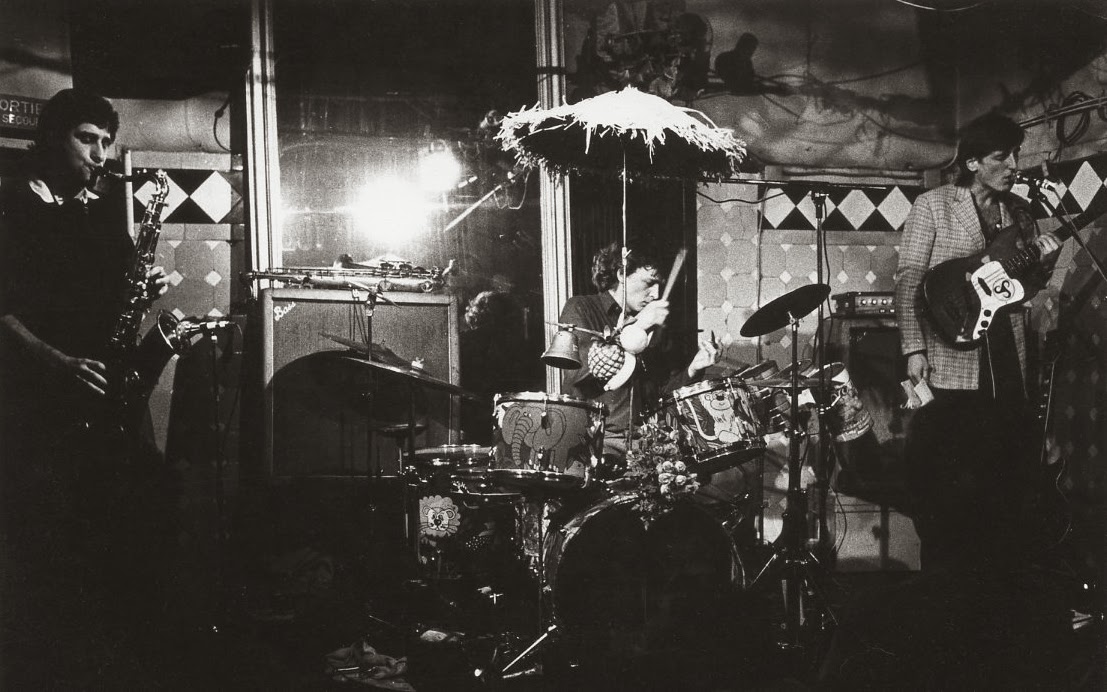
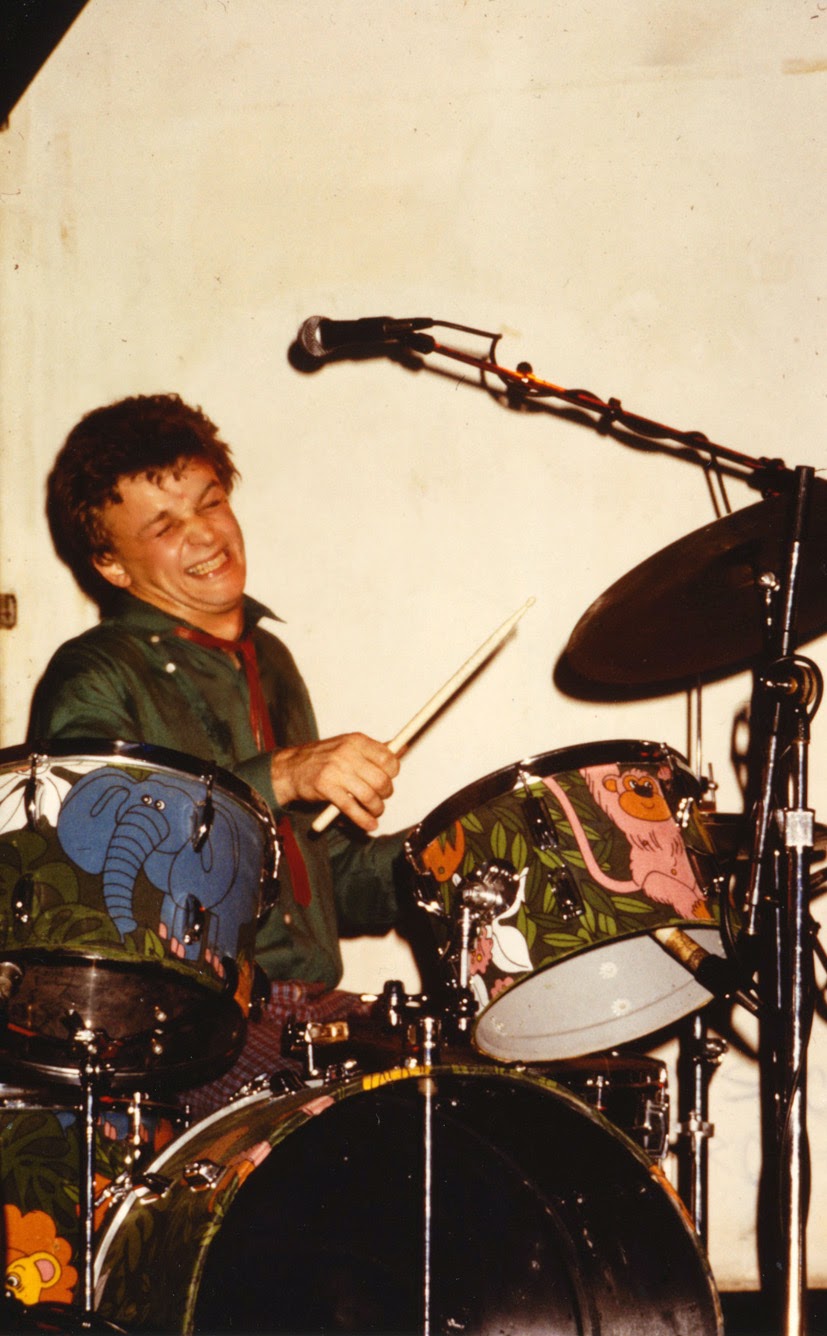

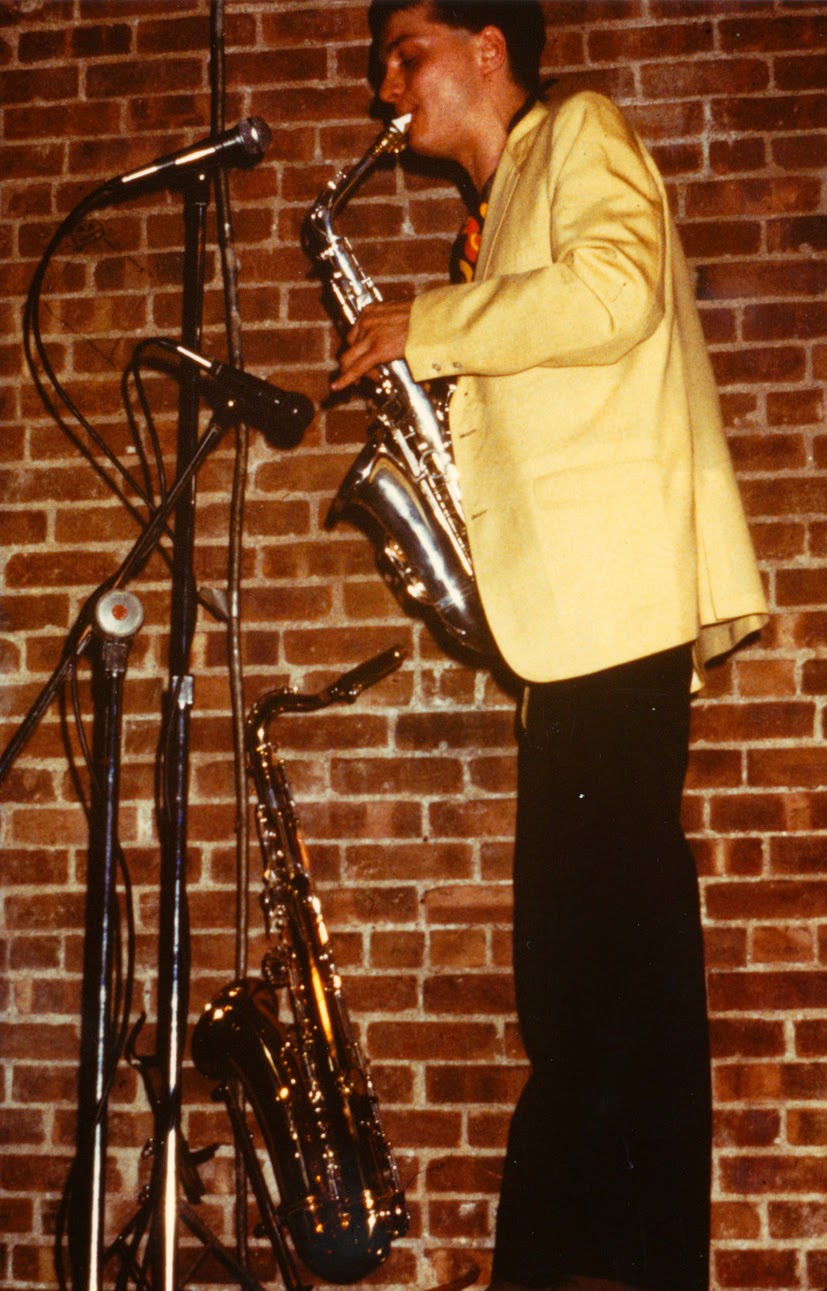
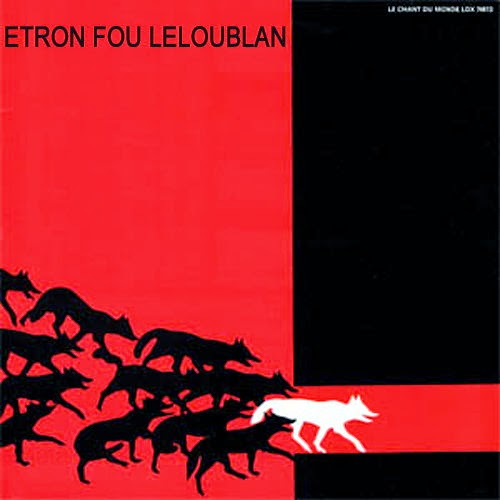
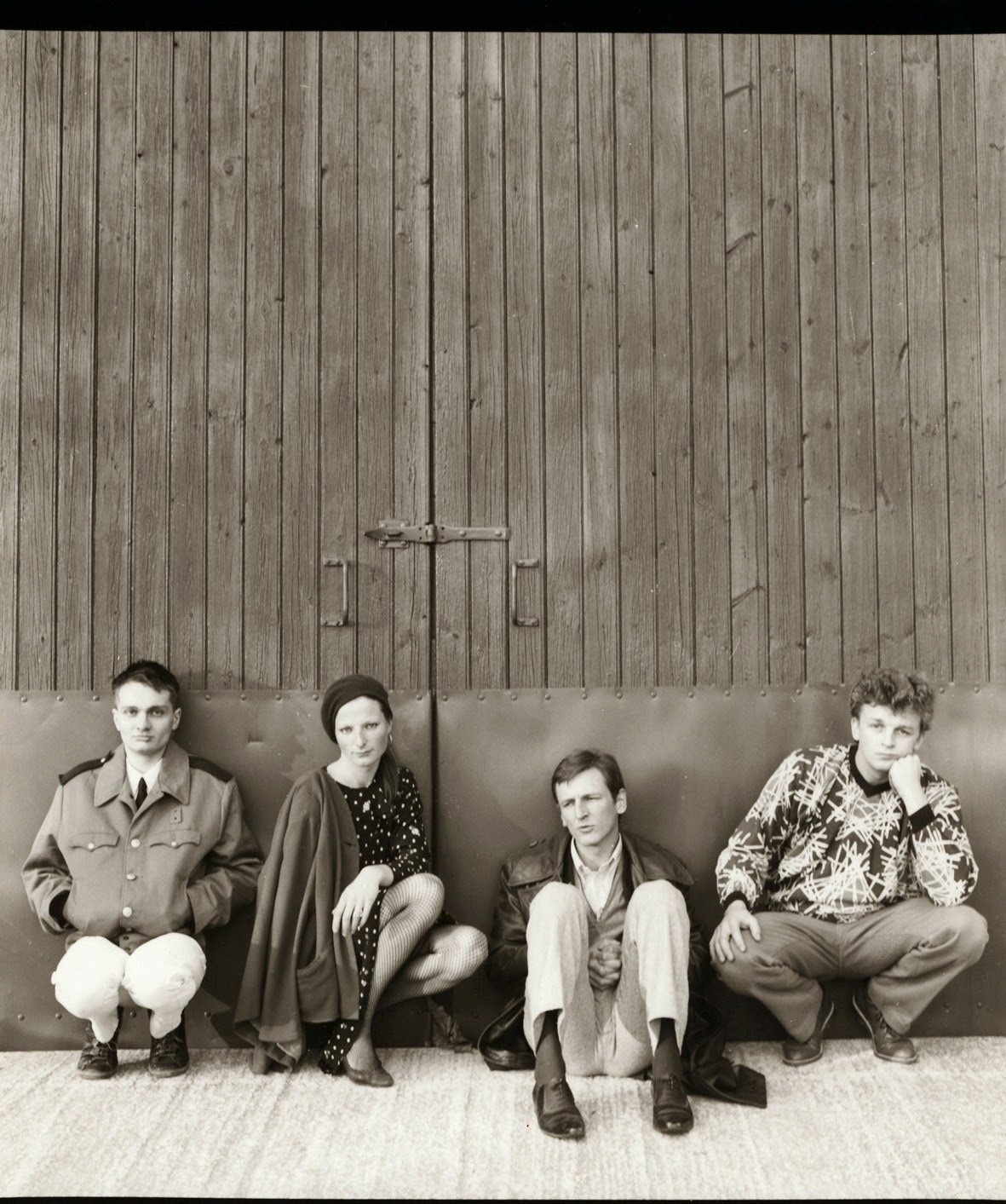
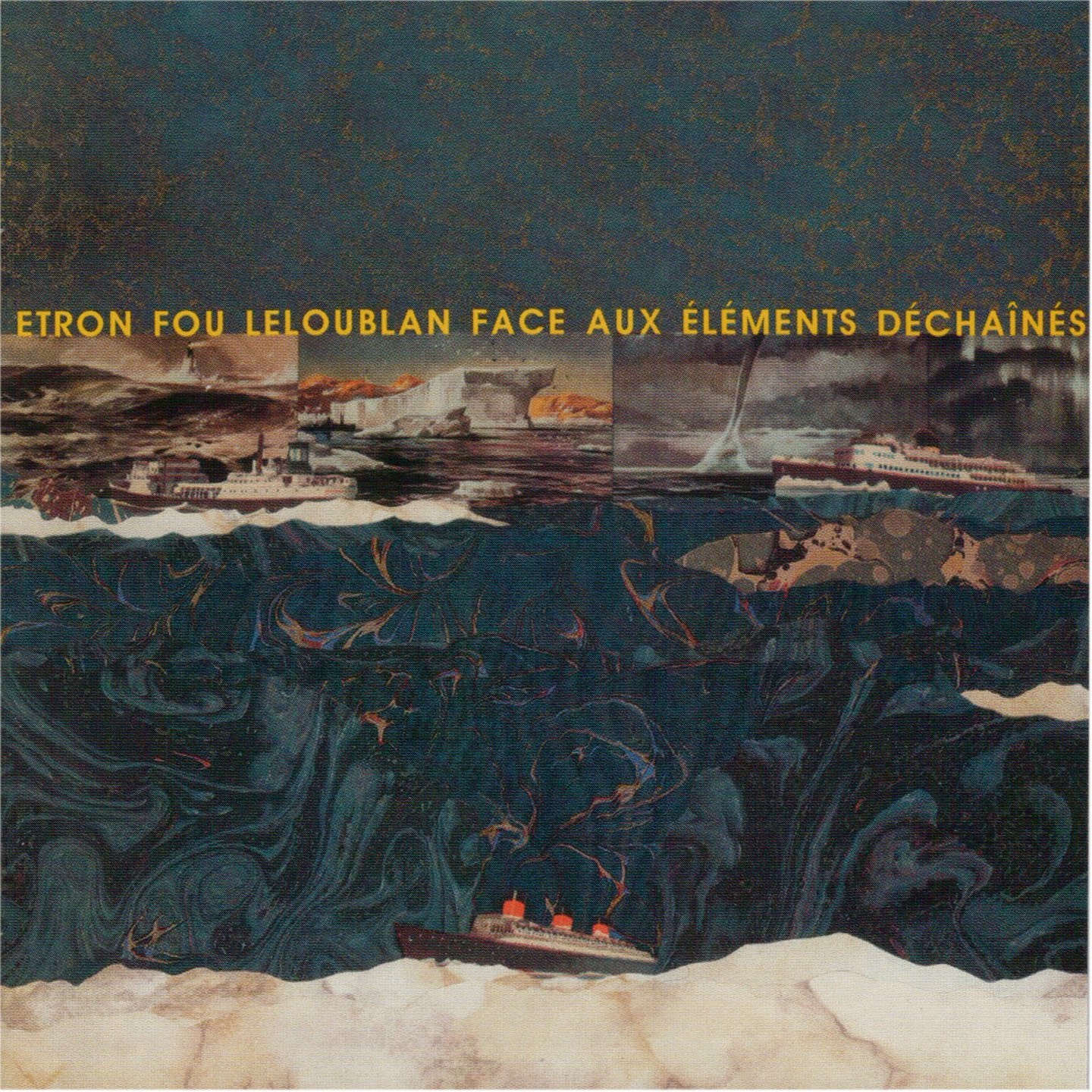
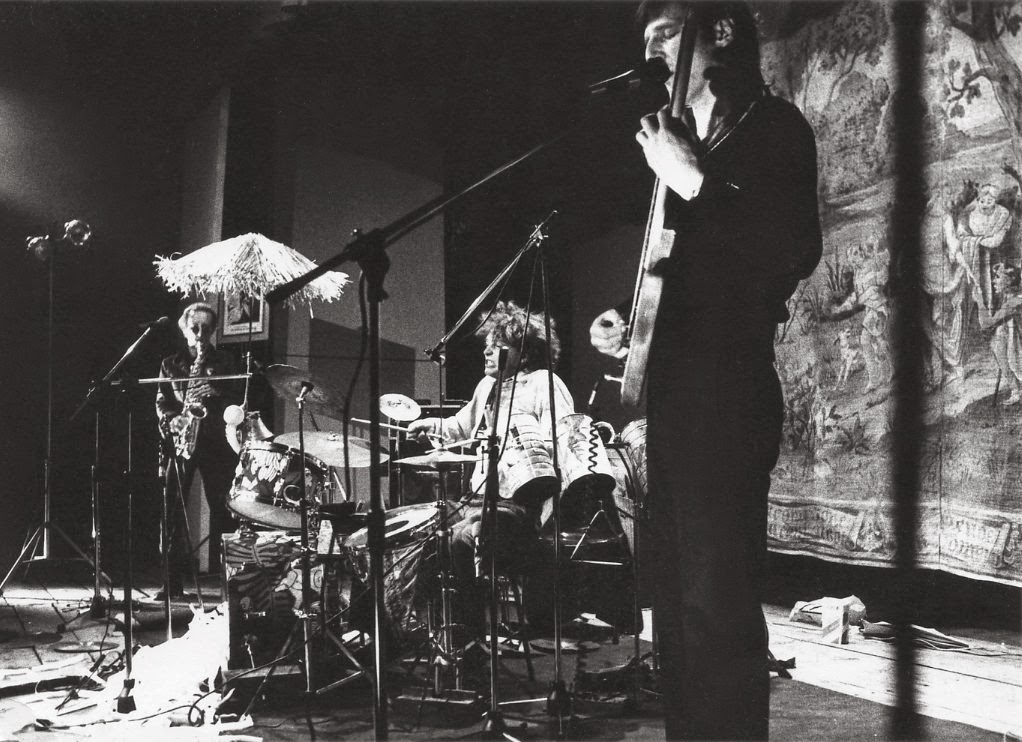
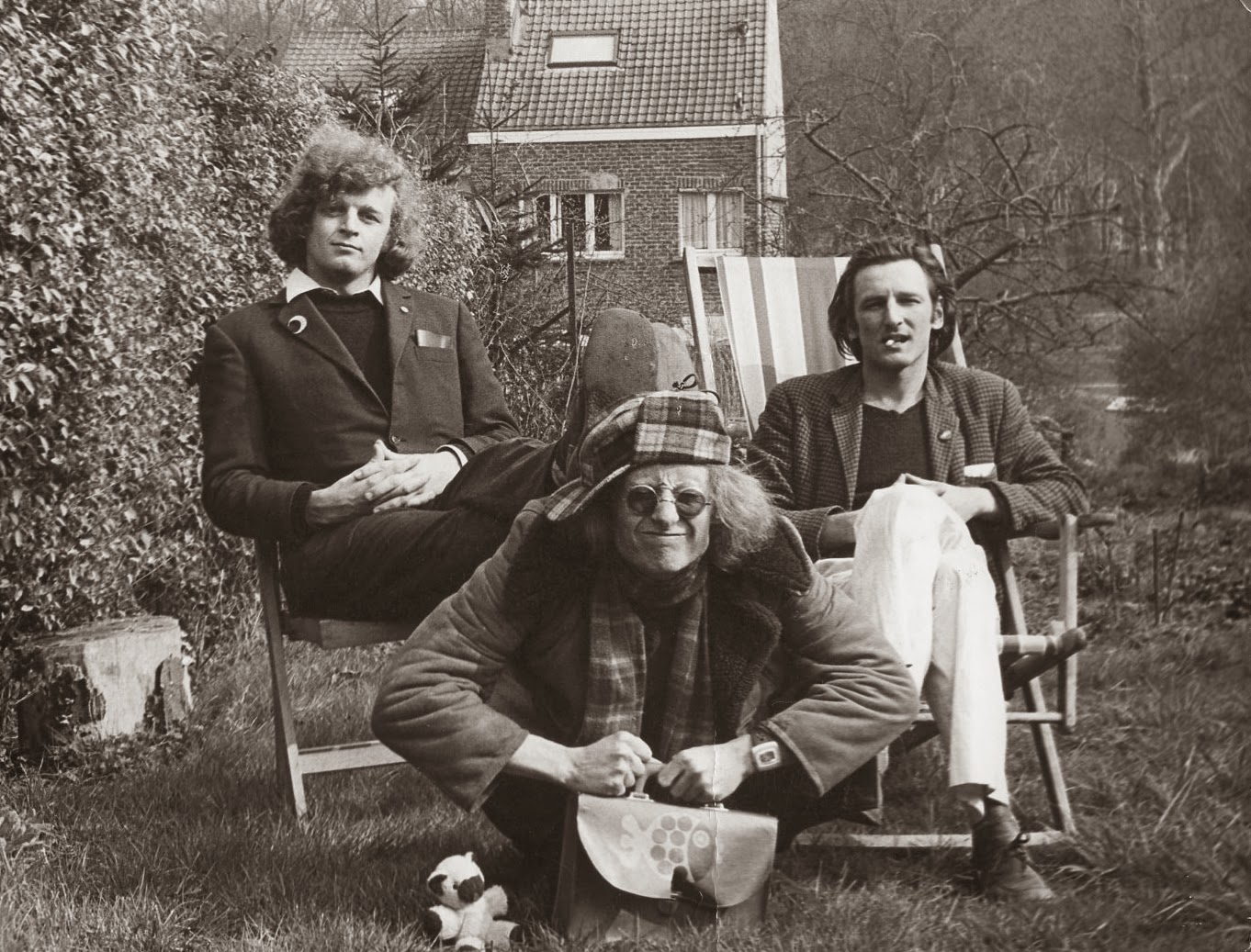
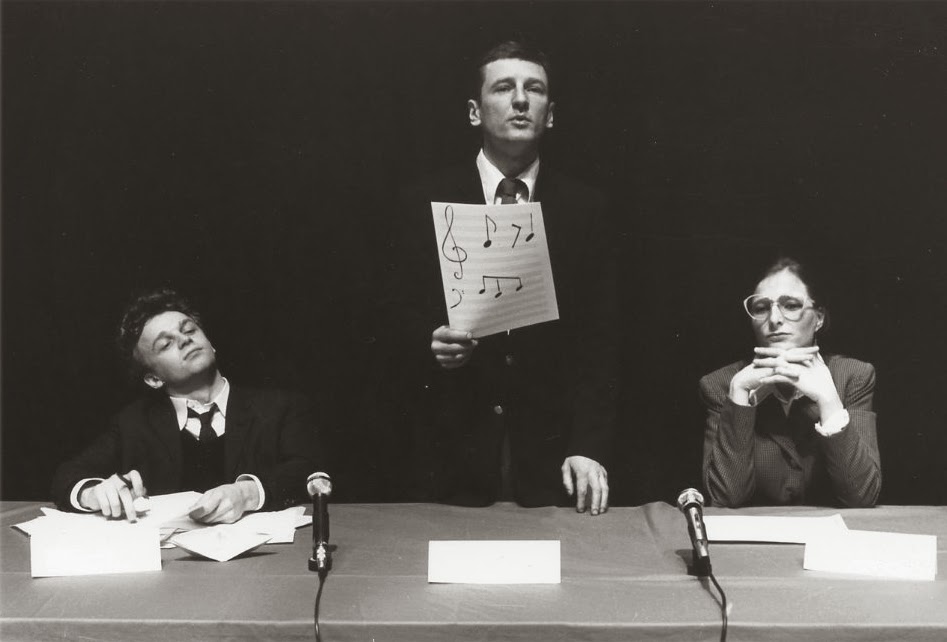



That's a great interview!Thanks for information about one of my favorite bands of all times.Nice to know that guys are still making great music,keep it up!!
Paul from Pskov,Russia
What about Jo Thirion?
Just a hello from Morgan Fisher. I met EFL in 1979 and they made a wonderful track called “Hep!” for my 1980 compilation album Miniatures (Fred Frith is also on the album – it is all one-minute pieces by 51 artists!). I really enjoyed this long and informative interview! Feel free to pass my contact details to Ferdinand!
Thank you vert much, fera Ann Riel, it seems that Jo Thirion does’nt exist…sa played in Etron Fou during 4 ou 5 years, in Art Moulu during 3 years, composed, but she does’nt exist. Incredibule woman without interview, without any mention…she is really really strong and wonderfull!
Thank you vert much, dear Ann Rupel, hope you’re going well! it seems that Jo Thirion does’nt exist…she played in Etron Fou during 4 ou 5 years, in Art Moulu during 3 years, composed, but she does’nt exist. Incredibule woman without interview, without any mention…she is really really strong and wonderfull!